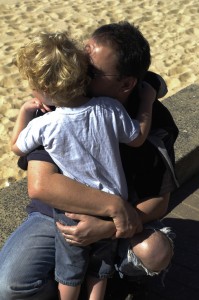 Young children live in an entirely different world than adults do: a world where spilling juice is the most upsetting thing in the universe and where an army of ants is a cause for endless laughter. As children grow older, and navigate their way through the teenage years, their behavior and emotions can often emerge with the same intensity that was present during toddler-hood. Empathetic parents (parents who are understanding and strive to see situations from their child’s point of view) can provide the rock that children need to grow into secure and confident adults.
Young children live in an entirely different world than adults do: a world where spilling juice is the most upsetting thing in the universe and where an army of ants is a cause for endless laughter. As children grow older, and navigate their way through the teenage years, their behavior and emotions can often emerge with the same intensity that was present during toddler-hood. Empathetic parents (parents who are understanding and strive to see situations from their child’s point of view) can provide the rock that children need to grow into secure and confident adults.
For the anxious child, empathetic parents can provide security by demonstrating to their child that their feelings are understood and accepted.
What does it really mean to be empathetic with a child? It is not easy. True empathy is not part of the language of our culture. It is a skill that takes time, patience, and practice to learn.
As parents, it is often second nature to want to solve problems for our children. But often, children are not looking for a person to solve their problems, they are looking for someone to just listen while they sort through their feelings. So next time your child comes to you with a problem or a complaint (for example, they tell you how much they can’t stand their brother), give your child room to explain the situation before jumping in and attempting to problem-solve. Try providing short responses that encourage your child to continue expressing themselves (examples: “you seem really angry”, “that must have been so frustrating”, “mmm hmmm”, “oh, wow”).
Often times when children and teenagers are given the opportunity express their feelings without judgement (“take that back”, “you don’t really feel that way”, “it couldn’t have been that bad”), then they will begin to see a situation in a whole new light and come up with a solution all by themselves.
When striving to be as empathetic as possible with your child, you are also giving your child a wonderful gift: you are modeling how they can, in turn, show empathy to themselves and others. Fear of rejection is often an underlying factor when it comes to anxiety, and a little empathy can go a long way.





